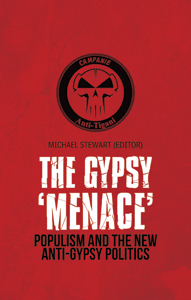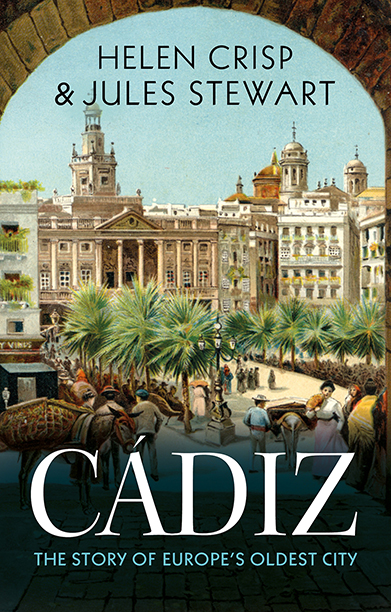Description
Across Europe, Roma and Gypsies are suffering increasing intolerance and hostility. A new populist politics, that seeks political meaning in collective experiences and values forms of solidarity rooted in town, class, community or nation, finds in the Roma a suitable target population to which ‘ordinary citizens’’ fears and frustrations can be attached. This politics draws on a rising tide of xenophobia; a feeling of loss of sovereignity and democratic oversight; disillusionment with political elites; frustrations with the failure of welfare programmes; the presentation of social and political conflicts as cultural issues; and a growing rejection of the ideal of a trans-national European order.
The Gypsy Menace’s fifteen chapters range geographically from Belfast to Sofia, via Paris, Rome, Prague and Budapest. They show how, in their reactions to the presence of ten million or so Romany persons in their midst, some Europeans are testing the limits of the ‘social imaginary’ and beginning to flesh out new ways of thinking about the ties that bind and connect citizens in Europe — and those that can be severed. The authors, who include political scientists, sociologists and anthropologists from across the continent, set the rapid shifts in political debate regarding Roma against the background of huge social and economic changes in the past thirty years, the recent, frightening resurgence of populist politics, and a noticeable increase in inter-ethnic violence and hate crimes. This book resets the agenda for thinking about Europe’s largest minority, analysing not only the challenges a liberal, tolerant politics confronts but also suggesting ways of acting against the new xenophobia.
Table of contents
Preface — Misha Glenny
Foreword: New Forms of Anti-Gypsy Politics: A Challenge for Europe — Michael Stewart
PART 1: ANTI-GYPSYISM: NEW CONTOURS OF SOCIAL AND POLITICAL EXCLUSIONS
1. Populism, Roma and the European Politics of Cultural Difference — Michael Stewart
2. Abusive Language and Discriminatory Measures in Hungarian Local Policy — Janos Zolnay
3. Integralist Narratives and Redemptive Anti-Gypsy Politics in Bulgaria — Georgia Efremova
4. Social Exclusion of the Roma and Czech Society — Karel Cada
5. Left-Wing Progress? Neo-Nationalism and the Case of Romany Migrants in Italy — Giovanni Picker
6. Underclass Gypsies: An Historical Approach on Categorisation and Exclusion in France in the Nineteenth and Twentieth Centuries — Ilsen About
PART 2: FROM LOCAL CONFLICTS TO RESHAPINGS OF THE SOCIAL IMAGINARY
7. Silencing and Naming the Difference — Kata Horvath
8. Anti-Gypsyism and the Extreme-Right in the Czech Republic 2008–2011 — Gwendolyn Albert
9. Spaces of Hate, Places of Hope: The Romanian Roma in Belfast — Colin Clark and Gareth Rice
10. Segregation and Ethnic Conflicts in Romania: Getting Beyond the Model of ‘The Last Drop’ — Stefania Toma
PART 3: COMBATING EXTREMISM
11. Cucumbers Fighting Migrations: The Contribution of NGOs to the Perception of Temporary Romany Migrations from Medovce-Metete/Slovakia — Stefan Benedik, Wolfgang Goderle and Barbara Tiefenbacher
12. Possible Responses to the Sweep of Right-Wing Forces and Anti-Gypsyism in Hungary — Lidia Balogh
13. Strategies for Combating Right-Wing Populism and Racism: Steps Towards a Pluralist and Humane Europe — Britta Schellenberg
14. Hidden Potentials in ‘Naming the Gypsy’: The Transformation of the Gypsy-Hungarian Distinction — Cecilia Kovai
15. Dogmatism, Hypocrisy and the Inadequacy of Legal and Social Responses Combating Hate Crimes and Extremism: The CEE Experience — Andras L. Pap
Notes
References
Index
Reviews
‘In the last few years the Roma have increasingly become the explicit target of rising rightwing populism and hate speech in various European countries. In this excellent book a broad array of authors study this unsettling trend in detail. They also search for explanations that are fully aware of the larger political context – including the unintended effects of European integration and the rise of identity politics.’ — Peter Vermeersch, Professor of Political Science, and author of The Romani Movement: Minority Politics and Ethnic Mobilization in Contemporary Central Europe
‘Attitudes to Roma and Gypsies have changed dramatically in many EU countries over the past five or six years. The great merit of this book is not just its timely and perceptive analyses of the local and transnational forces causing this change, but also its proposals for challenging these new forms of ethnic hatred. This book shows just how urgent and important it is to find European wide solutions to the challenges that the Roma face today. It should be an invaluable resource for policy-makers and politicians alike.’ — Dr Lívia Járóka, Member of the European Parliament
‘This book is a crucial intervention, demonstrating how new forms of racism and social exclusion are taking shape in the wake of European Unification. The chapters, representing several scholarly disciplines and methods, break from long-dominant paradigms that have blamed “Gypsy culture” for the violence that has targeted them. Instead, they aim their analytic gaze sharply at specific political networks and alliances that mobilize anti-Gypsy feeling, and at those new European policies and changes that, all too ironically, motivate them.’ — Alaina Lemon, Department of Anthropology, University of Michigan
‘Anyone looking to inform themselves on the current state of antiziganism and the increasing animosity toward Roma in European politics and society should read this book …brilliant, comprehensive and thoroughly recommended.’ — Romano Centro
Editor(s)
Michael Stewart is a LSE-trained social anthropologist who has worked with Romany communities in Hungary and Romania for over twenty-five years. He is the author of Time of the Gypsies (1997) and co-editor of Lillies of the Field: Marginal People who Live for the Moment (1998). He teaches anthropology at UCL and has, since 1998, run a summer school at Central European University for researchers working with Roma.

